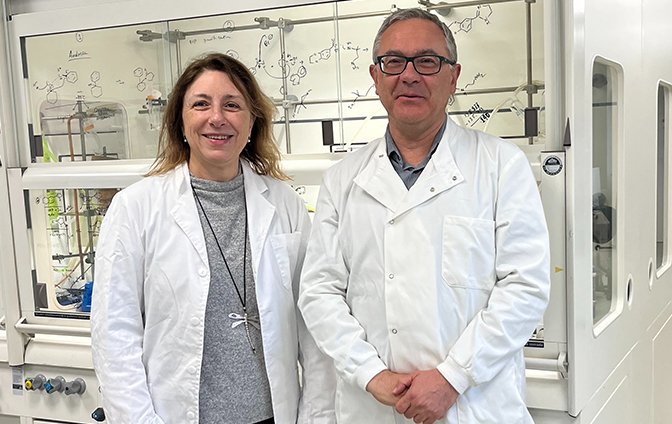
A new compound with therapeutic potential for Alzheimer’s patients
(Year 2025)
University of Barcelona / Repoxegen Therapeutics Inc.
A team from the University of Barcelona (UB) has developed an innovative compound that shows neuroprotective and anti-inflammatory effects in animal models of Alzheimer’s disease. This breakthrough represents a new therapeutic route to address a pathology that affects more than 800,000 people in Spain and that, to date, has no effective cure.
The drugs available to treat Alzheimer’s, the most common cause of dementia, have very limited efficacy. A study published in the journal ACS Pharmacology & Translational Science shows that treatment with the new compound created by the UB had neuroprotective effects in two mouse models of Alzheimer’s disease, culminating in an improvement in spatial and working memory and an improvement in the neuronal network.
An innovative approach
The new compound acts by inhibiting soluble epoxide hydrolase (sEH), an enzyme involved in the regulation of inflammatory processes in the brain. By inhibiting this enzyme, the levels of epoxyeicosatrienoic acids (EETs) are increased, molecules with anti-inflammatory properties that can reduce neuroinflammation and promote neuroprotection. This mechanism of action offers an alternative to current treatments focused on the reduction of beta amyloid plaques, which have shown limited efficacy.
The patent for the compound has been licensed to the start-up Repoxegen Therapeutics Inc., which will allow the preclinical and clinical trials necessary for health approval to be launched.
Multidisciplinary collaboration
The research is led by professors Mercè Pallàs, from the Faculty of Pharmacy and Food Sciences and the Institute of Neurosciences (UBneuro), and Santiago Vázquez, from the same faculty and the Institute of Biomedicine of the UB (IBUB). The work is also signed by UB researchers Christian Griñán-Ferré, Júlia Jarne-Ferrer, Javier Sánchez and Sandra Codony.
Experts from the Barcelona Institute of Biomedical Research (IIBB) —a center of the CSIC and the August Pi i Sunyer Institute of Biomedical Research (IDIBAPS)—, from the Neurodegenerative Diseases Area of the Networked Biomedical Research Center (CIBERNED) and from the University of Bonn (Germany) have also participated.
For more information about license:
Repoxegen Therapeutics Inc.
For more scientific information:
Communication and Marketing FBG

